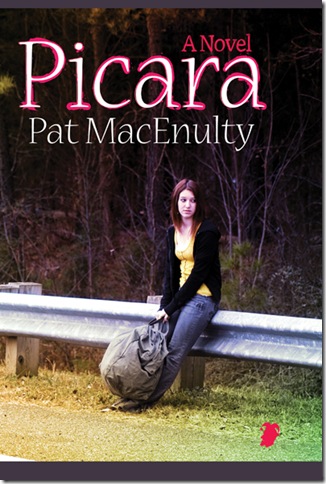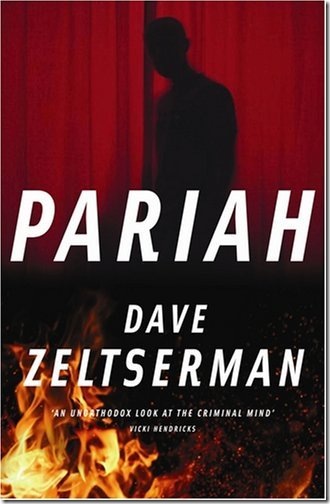Most newspapers and magazines posted their lists of the best books of 2009 by the end of November. I was no exception (you can see mine at the Florida Center for the Literary Arts Website).
The problem with these early lists, though useful for Christmas shopping, is they risk missing worthwhile books published late in the year, especially from small independent publishing houses.
Take Dave Zeltserman’s Pariah, an entry in what I think of as the Whitey Bulger sweepstakes. Fictions based on the fugitive Boston Irish mobster to date include George V. Higgins’ 2000 novel At the End of the Day and the Oscar-winning Martin Scorsese film The Departed. Zeltserman, writing in the pitch-black comic tradition of Jim Thompson or Charles Willeford, deserves to stand in such exalted company.
Once the number-two man in the South Boston Irish mob, Kyle Nevin finishes an eight-year prison stretch determined to revenge himself on his rat-bastard former boss, Red Mahoney (the Whitey Bulger character). Embraced as a folk hero in his old neighborhood, Kyle extorts protection money from liquor stores, breaks heads at any opposition, and draws his gone-straight brother into a plot to kidnap a rich kid for an $8 million ransom.
That’s not the half of it. Zeltserman has a gift – maybe a genius – for plot. The kidnapping, which I expected to be the climactic sequence, goes bad halfway through the book (the horrific details are too delicious to reveal), after which Kyle not only beats the rap but gets a multimillion-dollar deal to write a book.
Zeltserman’s no-nonsense prose conceals a serious literary ambition. He subverts genre conventions even as he fulfills them, and he mocks literary pretension with a knowing wink. The real power of this novel, though, lies in its portrait of Kyle, a monster who knows right from wrong and doesn’t care.
If you’re like me, you’ll be ashamed of yourself for exulting in Kyle’s appalling adventures as they spiral in shocking directions, each topping the last. Pariah, for all its noir trappings, is a kind of amoral, post-modern masterpiece – Kyle learned computer technology in prison – and reading it is a thrill of an altogether different order.
 Pat MacEnulty is another talented novelist who deserves a much wider audience. At least two of her five books are among the best I’ve read this decade – Sweet Fire, a semi-autobiographical novel of addiction, prostitution, drugstore robberies, prison and redemption; and The Language of Sharks, a subtle reworking of similar material in short stories. Her work tends to involve crime, too – Serpent’s Tail was her first publisher – but she’s not really a “crime novelist,” as she shows with her coming-of-age-in-the-’60s novel, Picara.
Pat MacEnulty is another talented novelist who deserves a much wider audience. At least two of her five books are among the best I’ve read this decade – Sweet Fire, a semi-autobiographical novel of addiction, prostitution, drugstore robberies, prison and redemption; and The Language of Sharks, a subtle reworking of similar material in short stories. Her work tends to involve crime, too – Serpent’s Tail was her first publisher – but she’s not really a “crime novelist,” as she shows with her coming-of-age-in-the-’60s novel, Picara.
Eli Webster is a familiar type, a Southern girl growing up without adequate supervision. Her alcoholic mother vanished years ago, and her hippie father lives in the Midwest with his new family. When her beloved step-grandmother, a semi-retired opera singer, dies of cancer, Eli runs away with a draft-dodger, thinking she’s on the road to adventure and romance.
What she finds instead – this is the late ’60s, early ’70s – is a world of underground Weathermen, black power revolutionaries, snitches and shoot-first police. Eventually Eli is rescued by her father, who turns out both more responsible and more revolutionary than she’d imagined. But life with his new family goes bad, and she finds herself on the road again.
MacEnulty writes with a concrete grace, deftly skirting pitfalls that might have tumbled the narrative into sentimentality, didacticism or predictability. She even avoids the curse of the Magic Negro – Miz Johnny, the maid who helps raise Eli, has an inner life, and she loves her own family more than the white people she works for.
Eli is a winning character – imagine Harper Lee’s Scout as a teenage runaway, or maybe Huck Finn as a girl. She has moments of aching clarity, as when a friend attempts suicide: “I wondered why she wanted to die. True, life was sad, but there was something nice about its sadness, something good enough to make you want to wake up and be sad for a little more.”
Although Eli smokes pot and takes part in some revolutionary shoplifting, she never drifts into drug addiction or full-blown criminality. She remains believably herself — smart and resilient, despite harsh experience and some pretty dumb choices.
But Picara is more than a compelling story. It’s a time-machine visit to a particular American moment, and MacEnulty gets the details just right.
Chauncey Mabe is the former books editor of the Sun-Sentinel. He can be reached at cmabe55@yahoo.com. Visit him on Facebook.
Pariah, by Dave Zeltserman, 276 pp., Serpent’s Tail; $14.95.
Picara, by Pat MacEnulty, 290 pp., Livingston Press; $16.95.
